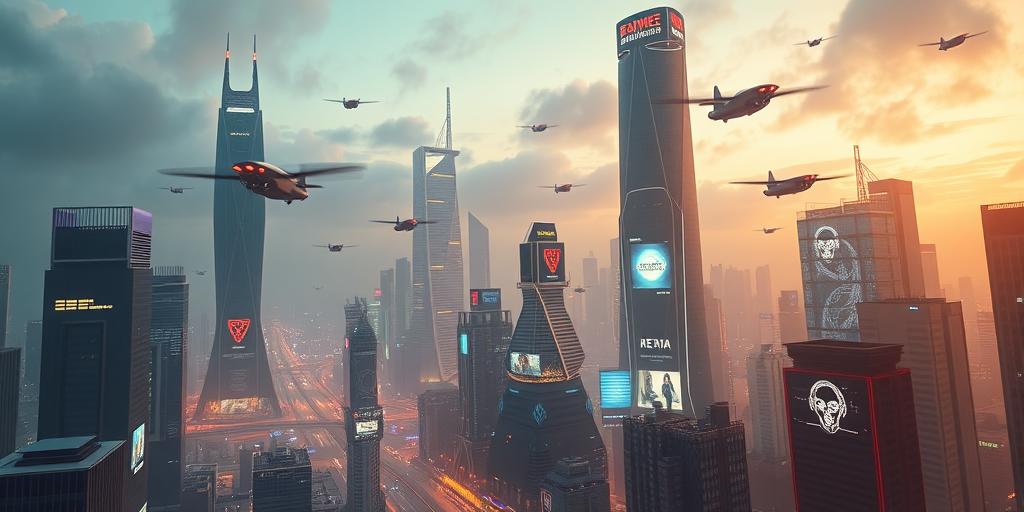Fasten your seatbelts, because we’re about to take a mind-bending journey to the year 2050, a time when Artificial Intelligence (AI) will be so advanced that even the wildest science fiction dreams may seem understated. Will AI be our savior, or our doom? Or perhaps, something completely unexpected? Let’s explore what the future holds for this transformative technology and what it could mean for humanity.
AI’s Unprecedented Advancements by 2050
Get ready for a paradigm shift! By 2050, AI will move far beyond the algorithms and narrow AI capabilities we see today. Expect breakthroughs in areas like Artificial General Intelligence (AGI), quantum computing, and neural networks that operate on levels of complexity and speed that are virtually unimaginable now. We’ll witness AI systems that can adapt and learn in ways that mimic human cognitive abilities, and even surpass them. Imagine AI that can not only process information but also understand, reason, and solve problems with unparalleled efficiency, creativity, and insight. That’s the future of AI. This will have a profound impact across numerous sectors, impacting everything from healthcare to finance.
Quantum Leap in AI Processing Power
Quantum computing stands to revolutionize AI processing speed. Current AI relies on massive data centers and enormous energy consumption. In contrast, quantum computers’ immense computational power will enable AI to process and analyze information at speeds far exceeding anything we’ve seen before. This will allow for the creation of unbelievably sophisticated AI models capable of simulating complex real-world systems with remarkable precision. This will lead to faster breakthroughs in medicine and engineering, creating opportunities we can’t even foresee.
The Rise of AGI: The Dawn of Truly Intelligent Machines?
One of the most exciting developments in the field will be the potential emergence of Artificial General Intelligence (AGI). AGI refers to AI systems that possess human-level cognitive abilities across a wide range of domains. This kind of intelligence will transcend the narrow AI we use today for specific tasks and could lead to AI that can solve problems independently, learn from experience, and even exhibit creative thinking. Will machines truly “think” by 2050? The possibility is both thrilling and a little daunting.
AI’s Impact on Everyday Life in 2050
It’s not just about technological advancements; the impact will be felt in every facet of our lives. Imagine personalized medicine tailored to your individual genetic makeup, self-driving cars that navigate complex road conditions with effortless grace, and smart homes that anticipate your every need. But it’s not all sunshine and rainbows. We need to prepare for potential challenges as well.
Transforming Healthcare with AI
Imagine a healthcare system where AI-powered diagnostics tools can detect diseases early and accurately, leading to more effective treatment. AI will help personalize treatment plans, predict disease outbreaks, and even accelerate the drug discovery process. This is not science fiction; this is the very real potential of AI in healthcare by 2050. Moreover, AI-powered robots will provide enhanced care for the elderly and disabled.
AI-Driven Transportation Revolution
Self-driving cars and autonomous delivery systems will transform transportation. Imagine seamless traffic flow, reduced accidents, and increased efficiency in logistics. However, there are significant societal changes to consider such as the displacement of human drivers and employment issues.
Smart Homes and Cities
Smart homes, equipped with AI-powered systems, will learn your habits and optimize your environment for maximum comfort and efficiency. Smart cities will use AI to optimize resource allocation and improve the quality of life for their citizens.
Navigating the Ethical and Societal Implications
While the prospects are dazzling, we must also confront the ethical considerations associated with a world increasingly reliant on AI. Jobs will be displaced, algorithmic bias will require solutions, and ensuring fairness and equity will be essential.
Job Displacement and Economic Transformation
The rise of AI will inevitably lead to job displacement in several sectors. Addressing this challenge will require proactive measures such as retraining initiatives, social safety nets, and exploring new economic models that can accommodate a changing workforce.
Mitigating Algorithmic Bias and Ensuring Fairness
AI systems are only as good as the data they are trained on. Addressing algorithmic bias – that is, biases reflected in the AI’s decisions – will be crucial to ensuring fairness and preventing discrimination. This requires careful data curation and algorithm design.
Global Cooperation and Ethical Guidelines
The development and deployment of advanced AI necessitate global cooperation and the establishment of ethical guidelines. International collaboration will be crucial to address the challenges and opportunities AI presents to humanity.
Embrace the future. The coming decades will transform our world in ways we can barely imagine, offering both incredible potential and significant challenges. But by understanding these changes and actively shaping the trajectory of AI, we can ensure a future where AI empowers humanity and enhances our collective well-being. Let’s work together to navigate this exciting journey!




